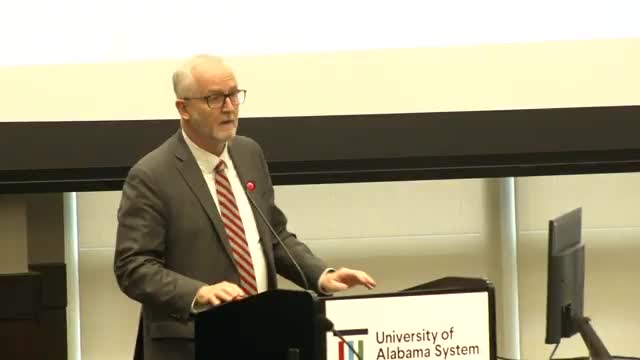Article not found
This article is no longer available. But don't worry—we've gathered other articles that discuss the same topic.

UAB spotlights student involvement and leadership programs, enrollment supports

Board names Marietta M. Urquhart trustee emerita after 20 years of service

Board elects Angus R. Cooper III to fill First Congressional District trustee seat

Sid J. Trent named permanent chancellor of University of Alabama System

UAH requests college name change to include sport and human sciences; trustees approve

UAB seeks reinstatement of cybersecurity center; trustees approve related administrative items

University of Alabama approves new master’s degree in biomedical engineering

Trustees approve clearer rules, annual financial reporting for system centers and institutes

